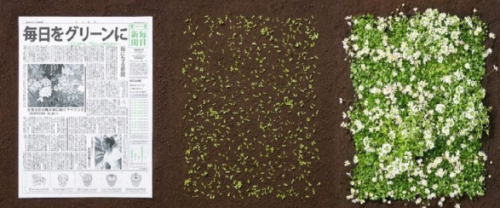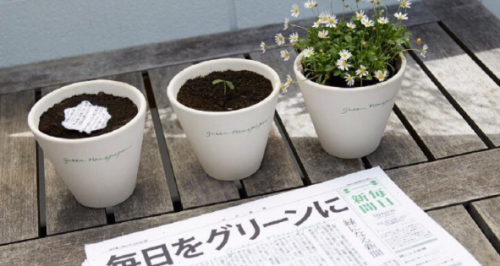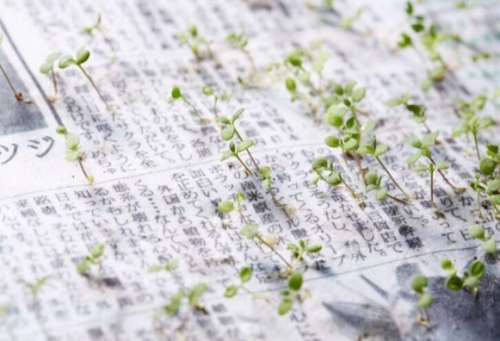Pic Taken From My Studygram

pic taken from my studygram
I’ve started revising all the kanji I’ve learnt during my first year of university. I’d rather literally do anything BUT kanji practice any day, everyday…. But I’m trying. For those interested, I’m using the basic kanji book! And the only method that ever worked for me is rewrite the kanji and the words where they are used like crazy, over and over again.
Ps: Miraculous Ladybug is a super great show!!
More Posts from Earthquakedeer and Others

German Vocabulary: Things Around the House
Requested by @tiedtonguesandflashcards
House - das Haus Door - die Tür Window - das Fenster Carpet - der Teppich
Lamp - die Lampe Light switch - der Lichtschalter Ceiling Fan - der Deckenlüfter Light bulb - die Glühlampe or die Glühbirne
Bedroom - das Schlafzimmer Bed - das Bett Pillow - das Kissen Blanket - die Bettdecke Closet - der Schrank To Sleep - schlafen To dream - träumen Bureau/Dresser - die Kommode Desk - der Schreibtisch
Living room - das Wohnzimmer Furniture - die Möbel (plural) Couch - die Couch Sofa - das Sofa Armchair - der Sessel Chair - der Stuhl Curtain - der Vorhang TV - der Fernseher Bookcase/Bookshelf - das Bücherregal Fire place - der Kamin Chimney - der Schornstein
Bathroom - das Badezimmer Mirror - der Spiegel Toilet - die Toilette Shower - die Dusche Bathtub - die Badewanne Water faucet - der Wasserhahn To shower - duschen To bathe - baden To wash oneself - sich waschen
Laundry - die Wäsche Laundry room - Wäschezimmer Washing Machine - die Waschmaschine Dryer - Wäschetrockner Broom - der Besen
Kitchen - die Küche Refridgerator - der Kühlschrank Blender - der Küchenmixer or der Mixer Oven - der Ofen Stove - der Herd Oven mitt - der Topfhandschuh Microwave - die Mikrowelle To cook - kochen To bake - backen To burn - anbrennen Dish washer - der Geschirrspüler or die Spülmaschine
Garage - die Garage Car - das Auto Bike - das Fahrrad Lawn mower - der Rasenmäher To mow - mähen Garbage can - die Mülltonne Rake - die Harke
German Verbs
A list of useful verbs because my knowledge of verbs in German is very limited
sein - to be haben - to have gehen - to go laufen - to walk rennen - to run fahren - to drive reisen - to travel schwimmen - to swim stehen - to stand sitzen - to sit machen - to make/do erschaffen - to create kochen - to cook essen - to eat trinken - to drink sprechen - to speak sagen - to say fragen - to ask hören - to hear zuhören - to listen mögen - to like wissen - to know (a concept) kennen - to know (a person) denken - to think glauben - to believe wollen - to want können - to be able to brauchen - to need lernen - to learn schreiben - to write lesen - to read lernen - to study verstehen - to understand vergessen - to forget erinnern - to remember üben - to practice sehen - to see beobachten - to watch tragen - to wear aufwachen - to wake up schlafen - to sleep arbeiten - to work kaufen - to buy spielen - to play benutzen - to use bringen - to bring kommen - to come zurückkommen - to return (come back) geben - to give bekommen - to receive nehmen - to take schauen - to look finden - to find treffen - to meet anfangen - to start beenden - to finish versuchen - to try entscheiden - to decide geboren werden - to be born sterben - to die leben - to live (a life) wohnen - to live (in an area) helfen - to help schicken - to send verändern - to change (alter)
[French]
If there are any mistakes or better translations please let me know!
Edit: I fixed a few mistakes




when you really do care about mother nature

“Deep End”
My Japanese supplies
These are my favorite books, textbooks and supplies in general for studying Japanese. Sorry if it’ s a big post.


These are my textbooks. The Genki II and its workbook are good for practicing but they have many group activities which suck if you study on your own. The tobira is really good, it has many reading activities and cultural notes but it’s a bit more advanced. For the living language books, I’d say the advanced one is more intermediate but they’re good for practicing and learning vocabulary.

These are my dictionaries. Tbh, I don’ t like the essential kanji dictionary, I don’t find it useful. The Japanese Verbs is a really good book, it has all the conjugations and examples and it explains them to you. The picture dictionary is a really fun way to learn more vocabulary.

These are my readings books. The ones about the cat are really easy to read, the folktales one is a bit harder but still very entertaining and Read real Japanese is more difficult but enjoyable.

These are the notebooks I use.I use 5mm notebooks for repeating kanji and a normal notebook f everything else.

These are some extra books that are useful for improving your Japanese and sounding more fluent.

And at last but not least, I use a lot of flashcards for writing every new kanji I learn. If you have any questions just ask! ❤️
“cute” in German
The basic translations for “cute” are either: niedlich or süß (the second one also meaning sweet like in taste) and here are some phrases and other words you might encounter or want to know! :) Some synonyms: drollig - cute and funny, derpy (like when a cat does weird but cute stuff) flauschig - soft and fluffy (in a cozy way like for a blanket or any animal you wanna touch) fluffig - fluffy (like an angora rabbit or a cake) klitzeklein - really small, very tiny knuddelig - cuddly knuffig - small and cute, cute so you want to hug it because it’s helpless and harmless lieb - lovely, kind, well behaved herzallerliebst - really very lovely and kind and cute (lit. heart-all-lovely) putzig - cute (can include animals wearing cute things), “not pretty but still or therefor cute”-cute, smol and cute weich - soft winzig - tiny zum Knutschen - cute so you wanna kiss it (knutschen=küssen - to kiss) Wie niedlich!/Wie süß! - How cute! Wie niiiieeedlich!/Wie süüüß!etc. - How cuuute! (you know, more vowels = more cuteness) (niedlich) aussehen (sieht aus, hat ausgesehen) - to look (cute) der Piepmatz - small and cute (song-)bird die Schnute - (belittlement of die Schnauze - snout) small and cute mouth (like of a cat) Diminutive (belittlement): Add -chen (sometimes -lein) to almost any noun. All nouns ending in -chen are neuter. Pay attention to vowel changes that usually occurs: a -> ä die Katze -> das Kätzchen (cat -> kitty or kitten) a final -e often disappears o -> ö der Vogel -> das Vögelchen (bird -> birdy) u -> ü der Hund -> das Hündchen (dog -> puppy-dog) u -> ü das Buch -> das Büchlein (book -> small book) au -> äu die Maus -> das Mäuschen (mouse -> cute tiny mouse) e, i, ei and eu don’t change. For example: e -> e die Ente -> das Entchen (duck -> duckling) e -> e das Ferkel -> das Ferkelchen (piglet -> smaller piglet) i -> i der Fisch -> das Fischchen (fish -> small fish) ei -> ei das Schwein -> das Schweinchen (pig -> small pig or piglet) There are also rather childish suffixes like: -leinchen, -i, -ilein, -ileini, -ileinchen, which are almost only used in speech. And regional suffixes like: -le. For example: Hundi (my aunt had a dog named like that… :D ) Hundileini (this is what a 5yo might refer to when they talk about their really cute and lovely dog) unser Katerle (our dear and lovely male cat) I probably forgot some stuff (like always) but those are some basics. And of course it’s not very easy to describe the exact difference between all those “cute"s. I’ll make a list of belittled/cute verbs later.
60 Japanese words for household objects

LIVING ROOM (リビング ribingu or 居間 ima)
1。 アーマチェア [āmuchea] ~ arm chair
2。電気スタンド [denki-sutando] ~ desk lamp; floor lamp
3。絵 [e] ~ painting
4。エアコン [eakon] ~ air conditioner
5。エンドテーブル [endo tēburu] ~ end table
6。電話 [denwa] ~ phone
7。ヒーター [hītā] ~ space heater
8。本棚 [hondana] ~ bookshelf; bookcase
9。コーヒーテールブ [kōhī tēburu] ~ coffee table
10。ソファー [sofā] ~ sofa
11。テレビ [terebi] ~ TV
BEDROOM (寝室 shinshitsu)
12。ベッド [beddo] ~ bed
13。ふとん [futon] ~ futon
14。カーテン [kāten] ~ curtains
15。枕 [makura] ~ pillow
16。目覚まし時計 [mezamashi-dokei] ~ alarm clock
17。毛布 [mōfu] ~ blanket
18。ナイトスタンド [naitosutando] ~ nightstand
19。シーツ [shītsu] ~ sheet
20。たんす [tansu] ~ chest of drawers
BATHROOM (バスルーム or 風呂場)
21。バスタオル [basu-taoru] ~ bath towel
22。ブラシ [burashi] ~ brush
23。ドライヤー [doraiyā] ~ hair dryer
24。歯ブラシ [ha-burashi] ~ toothbrush
25。鏡 [kagami] ~ mirror
26。シャワー [shawā] ~ shower
27。石鹸 [sekken] ~ soap
28。トイレットペーパー [toiretto pēpā] ~ toilet paper
DINING ROOM (ダイニング or 食堂)
29。フォーク [fōku] ~ fork
30。コップ [koppu] ~ glass; cup
31。ナイフ [naifu] ~ table knife
32。紙ナプキン [kami-napukin] ~ napkin
33。皿 [sara] ~ plate
34。スパチュラ [supachura] ~ spatula
35。スプーン [supūn] ~ spoon
36。テーブルクロス [tēburu-kurosu] ~ table cloth
37。器 [utsuwa] ~ bowl
KITCHEN (キツチン or 台所)
38。電子レンジ [denshi-renji] ~ mircrowave oven
39。冷凍庫 [reitōko] or フリーザー [furīzā] ~ freezer
40。椅子 [isu] ~ chair
41。コンロ [konro] ~ stove
42。キャビネット[kyabinetto] ~ cabinet
43。オーブン [ōbun] ~ oven
44。冷蔵庫 [reizōko] ~ refrigerator
45。食器洗い機 [shokki-arai-ki] ~ dishwasher
46。流し台 [nagashidai] or シンク [shinku] ~ sink
47。テーブル [tēburu] ~ table
48。ボール [bōru] ~ mixing bowl
49。フードプロセッサー [fūdo purosessā] ~ food processor
50。フライパン [furaipan] ~ frying pan
51。包丁 [hōchō] ~ chef’s knife
52。泡立て器 [awatateki] ~ whisk
53。計量カップ [keiryō kappu] ~ measuring cup
54。計量スプーン [keiryō supūn] ~ measuring spoon
55。コーヒーメーカー [kōhīmēkā] ~ coffee maker
56。まな板 [manaita] ~ cutting board
57。ミキサー [mikisā] ~ blender
58。鍋 [nabe] ~ pot
59。トースター [tōsutā] ~ toaster
60。ざる [zaru] ~ colander

October/Halloween Vocabulary 十月とハロウィーン
十月: じゅうがつ (juugatsu) - October/ month 10
十月十日: とつきとおか (totsukitooka) - babies born on October 10, supposedly conceived on New Year’s Day/ normal gestation time (i.e. 9 months)
秋: あき (aki) - autumn/ fall
草枯れ: くさがれ (kusagare) - autumn/ withering of the grass
秋日: しゅうじつ (shuujitsu) - autumn day/ autumn
紅葉: こうよう (kouyou) - autumn colors/ leaves changing color/ leaves turning red/ red leaves/ leaves turning yellow/ yellow leaves
紅葉: もみじ (momiji) - (Japanese) maple (Acer japonicum)/ venison
秋季: しゅうき (shuuki) - autumn season
秋風: あきかぜ (akikaze) - autumn breeze
秋色: しゅうしょく (shuushoku) - autumn scenery
紅葉狩り: もみじがり (momijigari) - autumn-leaf viewing
オカルティック (okarutikku) - occult/ spooky/ eerie
気味悪い: きみわるい (kimiwaru) - unpleasant/ uncomfortable/ creepy/ spooky
お化けの話: おばけのはなし (obakenohanashi) - spooky tale/ ghost story
物の怪: もののけ (mononoke) - (vengeful) ghost/ specter/ spectre
鬼: おに (oni) - oni, ogre, demon/ spirit of a deceased person/ ogre-like person (i.e. fierce, relentless, merciless, etc.)
魔: ま (ma) - demon/ devil/ evil spirit/ evil influence/ someone who habitually performs some negative act
魔女: まじょ (majo) - witch
南瓜: かぼちゃ (kabocha) - pumpkin (Cucurbita species)/ squash
お菓子: おかし (okashi) - confections/ sweets/ candy
キャンディ (kyandi) - candy
コスプレショー ( kosupuresho) - costume party
コスチュームプレー (kosuchu-mupure-) - cosplay/ period drama, costume drama, costume play



Talk about detail - this awesome Nikon camera replica is made entirely from cardboard! It was crafted by the Etsy artist Martha Crass of C is for Cardboard.
-
 givememyhappinessback liked this · 4 years ago
givememyhappinessback liked this · 4 years ago -
 greekmythsarefamilyfriendly liked this · 5 years ago
greekmythsarefamilyfriendly liked this · 5 years ago -
 kpopnba-blog liked this · 5 years ago
kpopnba-blog liked this · 5 years ago -
 redfallingflowerpetals-blog liked this · 5 years ago
redfallingflowerpetals-blog liked this · 5 years ago -
 shwings liked this · 5 years ago
shwings liked this · 5 years ago -
 inknstars reblogged this · 5 years ago
inknstars reblogged this · 5 years ago -
 inknstars liked this · 5 years ago
inknstars liked this · 5 years ago -
 jaidenelliot liked this · 5 years ago
jaidenelliot liked this · 5 years ago -
 mijikii liked this · 5 years ago
mijikii liked this · 5 years ago -
 sarastounding liked this · 5 years ago
sarastounding liked this · 5 years ago -
 hell0flora liked this · 6 years ago
hell0flora liked this · 6 years ago -
 espirare-desiderio liked this · 6 years ago
espirare-desiderio liked this · 6 years ago -
 anxiety-and-studying liked this · 6 years ago
anxiety-and-studying liked this · 6 years ago -
 rotzaprachim liked this · 6 years ago
rotzaprachim liked this · 6 years ago -
 itsukoyukime liked this · 6 years ago
itsukoyukime liked this · 6 years ago -
 hopefulvoidbatskeleton liked this · 6 years ago
hopefulvoidbatskeleton liked this · 6 years ago -
 pdivy liked this · 6 years ago
pdivy liked this · 6 years ago -
 quantodoteusal reblogged this · 6 years ago
quantodoteusal reblogged this · 6 years ago -
 quantodoteusal liked this · 6 years ago
quantodoteusal liked this · 6 years ago -
 fredio liked this · 6 years ago
fredio liked this · 6 years ago -
 kitsunestudiez liked this · 7 years ago
kitsunestudiez liked this · 7 years ago -
 vanillamouse liked this · 7 years ago
vanillamouse liked this · 7 years ago -
 honey-studiess reblogged this · 7 years ago
honey-studiess reblogged this · 7 years ago -
 holy-batman liked this · 7 years ago
holy-batman liked this · 7 years ago -
 vexilanimous liked this · 7 years ago
vexilanimous liked this · 7 years ago -
 nathaliedalle liked this · 7 years ago
nathaliedalle liked this · 7 years ago -
 myunghhoe liked this · 7 years ago
myunghhoe liked this · 7 years ago -
 dreeee-a-blog liked this · 7 years ago
dreeee-a-blog liked this · 7 years ago -
 candycanesandcandleflames liked this · 7 years ago
candycanesandcandleflames liked this · 7 years ago -
 queued-art liked this · 7 years ago
queued-art liked this · 7 years ago -
 icemoon29932-blog1 reblogged this · 7 years ago
icemoon29932-blog1 reblogged this · 7 years ago -
 icemoon29932-blog1 liked this · 7 years ago
icemoon29932-blog1 liked this · 7 years ago -
 eatingcheesecake liked this · 7 years ago
eatingcheesecake liked this · 7 years ago
Just a person learning Japanese. Self-learner. If you're also studying Japanese and want to practice with someone (and you're also very much a beginner) then message me! はじめまして! さびーなです。よとしく!
196 posts